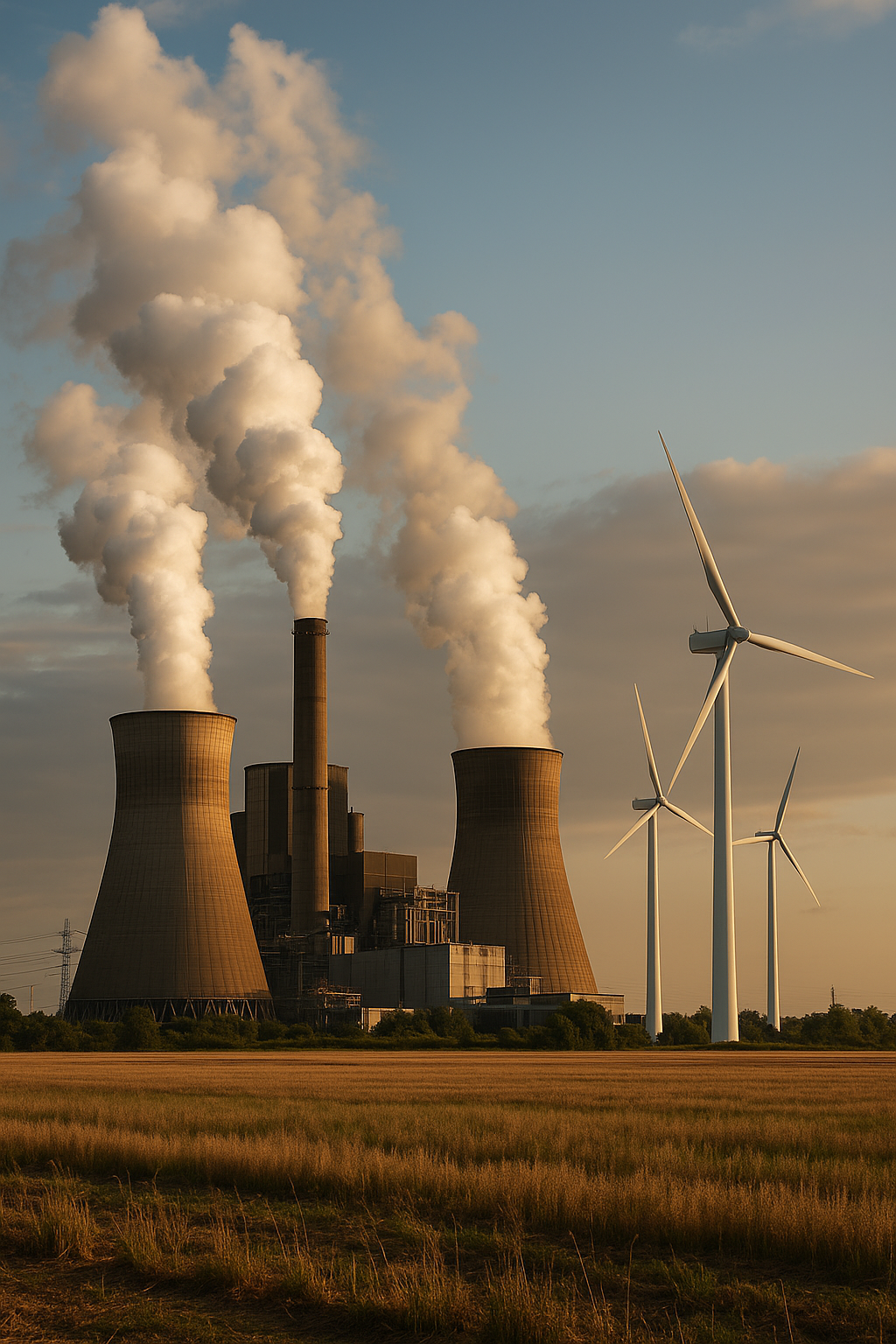U.S. and China lag in fair share of energy transition efforts
The comparative analysis highlights stark differences in responsibility and transition outcomes between developed and developing countries. The United States, the United Kingdom, and Germany show movement in the right direction, with fossil fuel shares declining steadily.

In a world already grappling with climate-induced disasters, from floods to heatwaves, the urgency of aligning responsibility with action is greater than ever. A team of researchers has introduced a new framework for assessing fairness in the global energy transition, highlighting deep disparities between developed and developing nations. Their findings point to urgent gaps in both responsibility and financial commitments that could shape the future trajectory of climate justice.
The paper, titled “Assessing Global Responsibility: Comparative Analysis of Fairness in Energy Transition Between Developing and Developed Countries,” and published in the journal Sustainability, applies an open-data methodology to analyze historical responsibility, current capacity, energy consumption patterns, and climate finance contributions across six nations: the United States, the United Kingdom, Germany, China, Brazil, and Pakistan.
How fairness in energy transition is measured
The researchers designed a multi-layered index system to examine both historical emissions and current economic strength as benchmarks for fair participation in the energy transition. They propose three core indicators. The Responsibility Index (RI) measures cumulative national emissions since 1800, rejecting exemptions for so-called development emissions and instead holding all contributions to global warming accountable. The Capacity Index (CI) calculates economic ability to support the transition by measuring GDP above a development threshold set at 25 percent above the Pritchett USD 16 per day line, equating to about USD 7,500 per capita per year.
Together, RI and CI are combined into the Responsibility–Capacity Index (RCI), a measure of how much each nation should contribute to global climate action. To evaluate actual progress, the authors introduced the Transition Index (TI), which tracks reductions in fossil fuel dependency across national energy supplies. Four versions of the TI expand the analysis by weighting it with historical responsibility and each nation’s share of global energy consumption, allowing researchers to understand not only national progress but also its global significance.
The framework, rooted entirely in open-source data from international agencies, provides a practical and replicable model for monitoring fairness in climate action. It aims to overcome the limitations of previous frameworks by making historical responsibility central and by ensuring that transition progress is judged against both local and global impacts.
What the findings reveal about responsibility and progress
The comparative analysis highlights stark differences in responsibility and transition outcomes between developed and developing countries. The United States, the United Kingdom, and Germany show movement in the right direction, with fossil fuel shares declining steadily. Yet, even among these nations, gaps remain between responsibility and actual action. The United States, which carries one of the highest RCIs due to its long-standing emissions, is making progress but has not fully aligned its contributions with its global share. Germany and the UK, on the other hand, emerge as comparatively fair performers, balancing their RCI with substantial renewable integration and relatively stronger financial contributions.
China presents the most complex case. Despite rapidly expanding renewable energy, its total energy consumption and emissions continue to rise at a pace that outweighs progress. With a global energy consumption share of 26.4 percent in 2022, compared with 15.9 percent for the U.S., China’s trajectory effectively cancels out gains made elsewhere. This duality underscores the difficulty of balancing national development goals with global responsibility in emerging economies.
For Brazil and Pakistan, the analysis shows poor transition directionality, with both countries continuing to rely heavily on fossil fuels. Yet their relatively small shares of global emissions and economic capacity lessen the weight of their impact compared to larger players. Still, the study emphasizes that fairness cannot excuse inaction, as vulnerability to climate disasters in developing nations continues to grow, raising questions about global equity in adaptation support.
Where climate finance stands and why it matters
Perhaps the most pressing insight from the study concerns the disparity between climate finance pledges and actual deposits into the Green Climate Fund. Developed countries have long promised to support developing nations in financing the energy transition, but delivery has fallen short. The United States, for instance, pledged more than USD 10 billion but has deposited only about half. The United Kingdom shows a deposit gap of nearly 23 percent, while Germany stands out as an exception, depositing amounts exceeding its fair-share contribution at 173 percent.
On the recipient side, Brazil has obtained around USD 1.2 billion, China about USD 600 million, and Pakistan just over USD 200 million. These amounts, while significant, remain modest relative to the scale of the challenge and the losses faced by vulnerable populations. The study stresses that closing the gap between pledges and actual deposits is crucial for enabling developing nations to accelerate their transitions without compromising economic stability.
By aligning climate finance with responsibility and capacity, the study argues, the global community can bridge the fairness gap. Without such action, developing nations risk being left behind while shouldering a disproportionate burden of climate impacts.
- READ MORE ON:
- Global energy transition fairness
- Climate justice in energy transition
- Responsibility in global emissions
- Sustainability and energy transition equity
- Energy transition accountability
- How developed countries fall short on fair climate action
- Why China and the U.S. lag behind in fair energy transition efforts
- Climate finance gaps between pledges and deposits
- FIRST PUBLISHED IN:
- Devdiscourse










